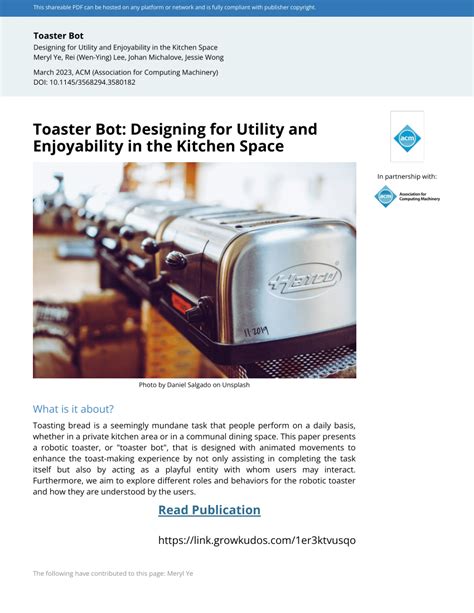Enjoyability is a multifaceted concept that plays a crucial role in determining the overall quality of human experiences, spanning across various domains such as entertainment, education, and even workplace productivity. At its core, enjoyability refers to the extent to which an activity, product, or service is pleasing, engaging, and satisfying. This concept is intricately linked with user experience, emotional connection, and the psychological state of flow, which is characterized by heightened focus, concentration, and enjoyment.
Research in psychology and neuroscience has shed light on the factors that contribute to enjoyability, including intrinsic motivation, autonomy, challenge, and feedback. For instance, when individuals are engaged in activities that align with their interests and values, they are more likely to experience a sense of enjoyment and fulfillment. Furthermore, the presence of clear goals, achievable challenges, and timely feedback can enhance the enjoyability of an experience by promoting a sense of progression and accomplishment. The psychological benefits of enjoyable experiences are numerous, including reduced stress, improved mood, and enhanced cognitive functioning.
Key Points
- Enjoyability is a critical factor in determining the quality of human experiences across various domains.
- Intrinsic motivation, autonomy, challenge, and feedback are key contributors to enjoyability.
- The psychological state of flow is closely related to enjoyability, characterized by heightened focus, concentration, and enjoyment.
- Enjoyable experiences have numerous psychological benefits, including reduced stress, improved mood, and enhanced cognitive functioning.
- Understanding and enhancing enjoyability can lead to improved user engagement, satisfaction, and overall well-being.
The Psychology of Enjoyability

The psychology of enjoyability is complex and multifaceted, involving various cognitive, emotional, and social factors. One of the key psychological theories related to enjoyability is the Self-Determination Theory (SDT), which posits that human behavior is motivated by three innate psychological needs: autonomy, competence, and relatedness. When these needs are satisfied, individuals are more likely to experience enjoyment and satisfaction. Additionally, the theory of flow, introduced by Mihaly Csikszentmihalyi, highlights the importance of challenge, skill, and concentration in achieving enjoyable and rewarding experiences.
The Role of Emotions in Enjoyability
Emotions play a crucial role in enjoyability, as they can significantly enhance or detract from the overall experience. Positive emotions such as joy, excitement, and pride can increase enjoyability by creating a pleasant and engaging atmosphere. On the other hand, negative emotions like anxiety, boredom, and frustration can diminish enjoyability and lead to dissatisfaction. The emotional state of an individual can be influenced by various factors, including personal preferences, expectations, and the social context in which the experience takes place.
| Emotional State | Impact on Enjoyability |
|---|---|
| Positive Emotions (e.g., joy, excitement) | Enhance enjoyability, create a pleasant atmosphere |
| Negative Emotions (e.g., anxiety, boredom) | Diminish enjoyability, lead to dissatisfaction |
| Neutral Emotions (e.g., indifference) | May not significantly impact enjoyability, but can be influenced by contextual factors |

Enhancing Enjoyability in Various Domains

Enjoyability is a critical factor in various domains, including education, entertainment, and the workplace. In education, enjoyability can be enhanced by incorporating engaging and interactive learning materials, providing opportunities for autonomy and self-directed learning, and fostering a sense of community and social connection among learners. In the context of entertainment, enjoyability can be increased by offering a range of challenging and rewarding activities, providing clear goals and feedback, and ensuring that the experience is immersive and engaging.
In the workplace, enjoyability can be promoted by providing employees with autonomy, recognizing and rewarding their achievements, and fostering a positive and supportive work environment. By prioritizing enjoyability, organizations can enhance employee engagement, motivation, and overall well-being, leading to improved productivity and job satisfaction. The economic benefits of enjoyability in the workplace are also significant, as happy and engaged employees are more likely to be creative, innovative, and committed to their work.
Strategies for Enhancing Enjoyability
Several strategies can be employed to enhance enjoyability in various domains. These include providing clear goals and feedback, offering opportunities for autonomy and self-directed learning, and fostering a sense of community and social connection. Additionally, incorporating elements of challenge, reward, and progression can increase enjoyability by promoting a sense of accomplishment and satisfaction. The use of technology, such as gamification and interactive simulations, can also enhance enjoyability by providing immersive and engaging experiences.
What is the relationship between enjoyability and motivation?
+Enjoyability and motivation are closely related, as enjoyable experiences can increase intrinsic motivation and engagement. When individuals are motivated by intrinsic factors, such as interest and enjoyment, they are more likely to be engaged and satisfied.
How can enjoyability be enhanced in educational settings?
+Enjoyability in educational settings can be enhanced by incorporating engaging and interactive learning materials, providing opportunities for autonomy and self-directed learning, and fostering a sense of community and social connection among learners.
What are the economic benefits of prioritizing enjoyability in the workplace?
+Prioritizing enjoyability in the workplace can lead to improved employee engagement, motivation, and overall well-being, resulting in increased productivity, job satisfaction, and economic benefits such as reduced turnover and improved customer satisfaction.
In conclusion, enjoyability is a complex and multifaceted concept that plays a crucial role in determining the quality of human experiences across various domains. By understanding the psychological, emotional, and social factors that contribute to enjoyability, developers and creators can design experiences that are both engaging and satisfying. Prioritizing enjoyability can lead to numerous benefits, including improved motivation, engagement, and overall well-being, making it an essential consideration in various aspects of life.



